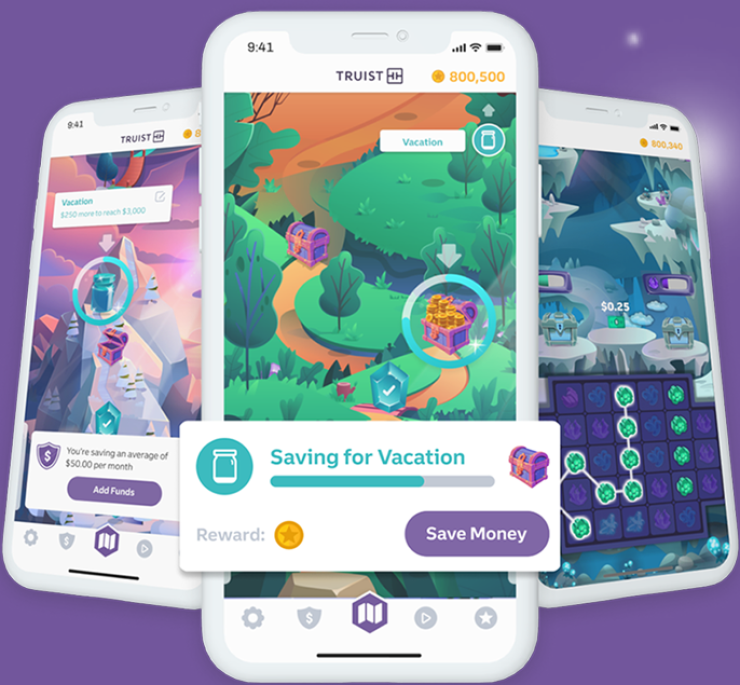Long Game, a
On Wednesday, the Charlotte, North Carolina, bank announced that customers could download the app, the product of a finance startup called Long Game that Truist bought

Long Game is a single sign-on product that now must be linked to a Truist account. Holden said it's primarily aimed at millennial and Generation Z customers.
"We see that that population enjoys playing games on their phones," Holden said in an interview. "We've taken the best practices from the gaming industry and used that to build a tool that helps people build their savings, learn financial literacy and drive better financial outcomes."
The first thing the customers will see when they open the Long Game app is the "daily game," which lets them earn coins they can use to play other games. They receive additional coins each day based on their linked Truist deposit account balance, and can rack up even more by initiating a "savings streak," or depositing $20 or more into their linked account each week. Users can also earn coins by answering questions correctly in up to two trivia modules per day, on topics such as retirement, interest rates and student loans. They can spend these coins to play other arcade or puzzle-type games that give them the chance to win cash prizes that will be transferred to their Truist account via application programming interfaces. Long Game also encourages users to set savings goals within the app.

"The ultimate goal is creating digital experiences that are fun and engaging, that make people love Truist and increase their financial wellness," said Holden.
Commonwealth, a nonprofit that focuses on financial security for low-income Americans, has piloted gamified savings programs before. For example, in a 2017 pilot, it found that users in the gamified group — primarily households that did not usually have the savings to cover an unexpected crisis — saved on average 25% more frequently than others.
"Gamification is a proven way to encourage people to save and engage with their savings account," said Nick Maynard, senior vice president at Commonwealth.
Because smartphones are widely available, financial education-oriented apps can be made available at scale more cost-effectively than traditional workshops.
"Games and apps address some of the shortcomings in traditional financial education by acting as appealing, low-stress entry points that motivate users," said Maynard.
Dylan Lerner, senior analyst in digital banking at Javelin Strategy & Research, agrees that gamification can be engaging and a useful tool for building healthy financial habits. But he spotted some areas where Long Game may fall short in its aspirations.
"Truist's Long Game does a great job approaching savings in an interesting way. However, it doesn't appear to incorporate much of this habit-forming gamification," he said.
Lerner points out that aside from trivia, the games have little or nothing to do with finance. Some reviewers point out they have earned only pennies as their cash prizes. Like "round up the change" programs, saving in small increments can help, but does not make as big of an impact as "paying oneself first" or automatically transferring money to savings using
"You have to wonder if a customer would make more off of interest sitting in a high-yield savings account at a digital bank," Lerner said.




